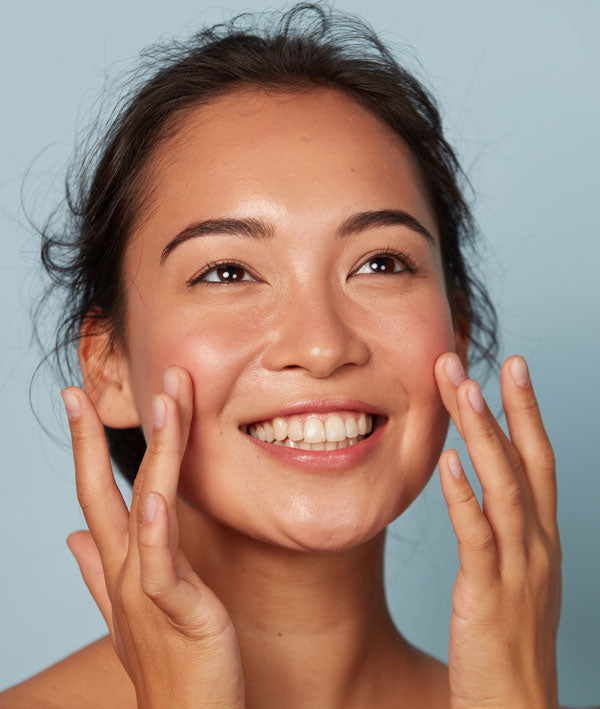With the rise of multi-step skincare routines, serums have become essential tools in the quest for brighter, smoother, and healthier-looking skin. But not all serums are created equal—and not all are safe or effective to use during the day. Some ingredients are best reserved for nighttime use when the skin is naturally repairing itself, and when you're not exposed to sunlight, pollutants, or makeup.
So, which serums should only be used at night? And why does timing matter so much? In this guide, we’ll explore the science behind nighttime serums, the key ingredients that should be applied exclusively after dark, and how to build a smart and safe bedtime skincare routine.
Why Some Serums Are Best Reserved for Nighttime
Your skin doesn’t behave the same way at night as it does during the day. While daylight hours are about defense—protecting against UV rays, pollution, and free radicals—nighttime is about repair and regeneration. Research shows that skin cell turnover increases while you sleep, along with blood flow to the skin, making it the perfect window for active treatments.
Some serums contain ingredients that are:
-
Photosensitive, meaning they break down or irritate the skin when exposed to sunlight
-
Intensely active, and can thin or weaken the skin barrier temporarily
-
Better absorbed overnight, when skin is at rest and free from external stressors
For these reasons, many dermatologists recommend using specific actives only at night to avoid sun sensitivity, reduce irritation, and maximize results.
Retinol: The Classic Night-Only Serum
Retinol (and its stronger cousins like retinaldehyde and tretinoin) is a vitamin A derivative that boosts cell turnover, fades dark spots, smooths fine lines, and helps prevent breakouts. It’s widely considered one of the most effective ingredients in modern skincare.
But here’s the catch: retinol is highly photosensitive. When exposed to sunlight, it degrades rapidly, making it less effective. Moreover, it can make your skin more vulnerable to sunburn and irritation, especially if you're not wearing sunscreen.
Why it belongs in your PM routine:
-
Retinol works in harmony with your skin’s natural nighttime repair cycle
-
It can cause dryness, flaking, or sensitivity that you don’t want to deal with under makeup
-
It needs time to penetrate and do its work undisturbed by other products or environmental factors
How to use it at night:
Start with a pea-sized amount on clean, dry skin, 2–3 times per week. Follow up with a barrier-supporting moisturizer. As your skin adjusts, you can increase frequency. And always wear SPF the next morning—even if you used retinol the night before.
AHAs and BHA Exfoliators: Exfoliating Acids That Work While You Sleep
Alpha Hydroxy Acids (AHAs) like glycolic and lactic acid, and Beta Hydroxy Acids (BHAs) like salicylic acid, are chemical exfoliants that dissolve dead skin cells, unclog pores, and improve texture and tone. These acids are incredibly effective at resurfacing the skin—but they come with a risk of photosensitivity.
Using AHAs or BHAs in the morning can leave your skin more vulnerable to sun damage, even if you're using sunscreen. That’s why dermatologists and estheticians recommend using them in your nighttime routine, when UV exposure is no longer a concern.
Nighttime benefits of exfoliating acids:
-
They stimulate skin renewal during peak overnight repair hours
-
Reduce congestion and prevent future breakouts while you sleep
-
Help prep your skin for better absorption of other serums
Tips for nighttime use:
Apply after cleansing and before moisturizing. If you're using a retinol on alternate nights, keep your acid use separate to prevent over-exfoliation. Look for formulations that combine soothing ingredients like niacinamide or aloe to reduce potential irritation.
Peptide and Growth Factor Serums: Nighttime Skin Renewal
While not always strictly night-only, peptides and growth factor serums work best when they can support the body’s natural repair processes—making nighttime the ideal application window.
Peptides are amino acid chains that send signals to the skin to produce more collagen and elastin. Growth factors are proteins that help repair tissue damage and regenerate cells. Both are instrumental in restoring firmness, elasticity, and a youthful appearance.
Why night is best for peptide-based serums:
-
Skin is more permeable at night, allowing these complex molecules to penetrate more effectively
-
You’re not competing with harsh daytime elements like sun, wind, and pollution
-
These formulas often work better on freshly exfoliated skin, which is usually part of a nighttime regimen
How to incorporate them:
Apply after your active treatments (like acids or retinol), or use them on “recovery” nights to replenish and hydrate the skin. They’re especially beneficial when your skin is feeling dry, stressed, or post-procedure.
Why You Should Avoid Certain Serums Before Sun Exposure
Certain active ingredients can increase photosensitivity or break down when exposed to UV light, making them unsuitable for daytime use—even when wearing sunscreen. These include:
-
Retinoids (retinol, tretinoin, retinaldehyde)
-
AHAs and BHAs (glycolic, lactic, mandelic, salicylic acids)
-
Benzoyl Peroxide (often used in acne treatments)
-
Hydroquinone (used to treat hyperpigmentation)
Applying these actives during the day can lead to:
-
Heightened risk of sunburn and hyperpigmentation
-
Inflammation or post-inflammatory erythema
-
Reduced effectiveness of the product due to degradation in light
Even if you’re diligent about SPF, these ingredients are more effective (and safer) when used in the evening. Instead, reserve your morning routine for antioxidants like vitamin C, hydrating serums, and protective moisturizers.

How to Build a Safe & Effective Nighttime Serum Routine
Creating a well-balanced nighttime serum routine doesn’t have to be complicated. Follow these steps to maximize results while protecting your skin barrier:
1. Cleanse Thoroughly
Remove all traces of sunscreen, makeup, and pollutants with a gentle cleanser. Double cleansing is a great option if you wear long-wear makeup or SPF.
2. Tone (Optional)
Use a hydrating or pH-balancing toner if desired, but avoid anything overly astringent, especially if you’re applying actives.
3. Apply Your Treatment Serum(s)
Depending on your skin goals and sensitivities, choose one of the following:
-
Night 1: Retinol serum for anti-aging and acne
-
Night 2: AHA or BHA exfoliating serum for resurfacing and texture
-
Night 3: Peptide or growth factor serum for hydration and recovery
Pro tip: Cycle your serums throughout the week to avoid overwhelming your skin. A 3-night rotation (actives, actives, recovery) works well for many skin types.
4. Moisturize Generously
Follow with a ceramide-rich or emollient moisturizer to lock in hydration and support your skin’s overnight repair.
5. Use a Sleeping Mask (Optional)
If your skin needs extra TLC, layer on a sleeping mask with hyaluronic acid or squalane to seal everything in and wake up with a supple glow.
Bonus Tips for Nighttime Serum Success
-
Patch test new products before applying to your full face
-
Start slowly—introduce one new active at a time
-
Avoid layering multiple actives unless the formula is designed for it
-
Stick to a routine for at least 4–6 weeks to see results
-
Don’t forget the neck and décolletage, which also benefit from overnight care
While many serums can be used day or night, certain powerhouse ingredients like retinol, AHAs, BHAs, and peptide complexes are most effective—and safest—when used after the sun goes down. The skin's natural regeneration process kicks into high gear at night, making it the perfect time to use potent serums that resurface, repair, and renew.
By understanding why some serums should only be used at night, and how to incorporate them into your routine thoughtfully, you can protect your skin during the day and supercharge your glow while you sleep.
Looking to upgrade your nighttime lineup? Explore Small Batch Serums’ curated collection of targeted, clean, and effective serums designed to support your skin’s overnight transformation.






